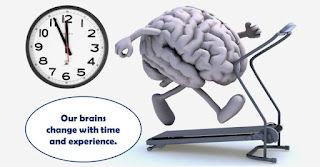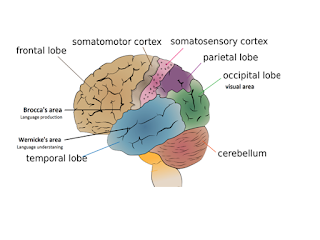AQA A-LEVEL: Approaches - The Psychodynamic Approach
THE PSYCHODYNAMIC APPROACH
ASSUMPTION- Behaviour is motivated by unconscious motives + events that occurred in childhood.
THE ROLE OF THE UNCONSCIOUS MIND
- CONSCIOUS - Thoughts the mind is aware of (perceptions + everyday thoughts) TOP
- PRECONSCIOUS - Just beneath the surface, (memories + stored knowledge) which can be accessed
- UNCONSCIOUS - Info which is hard to retrieve, the biggest part of our mind (fears, traumatic experiences, instincts). The unconscious directs and motivates behaviour without conscious awareness. It also protects us from the traumatic material which could damage the psyche if it was recalled into the conscious.
THE STRUCTURE OF PERSONALITY
- ID - Unconscious mind (motivated by the pleasure principle) has the immediate desire for satisfaction. Present from birth, e.g. 'a baby wanting milk'
- EGO - Rational mind (motivated by the reality principle), works to balance the demands of the ID and anxieties of the Superego. Present at 1-3 yrs e.g. 'I can't have dinner at 4 I have to wait'
- SUPEREGO - Conscious mind (motivated by a sense of right and wrong), you strive for perfection. Develops between 4-6yrs e.g. 'knowing not to steal an item you want'
DEFENCE MECHANISMS
- DISPLACEMENT - Taking out impulses on less threatening things
- REPRESSION
- ID impulses repressed by ego to stop it entering the conscious mind
- Ego uses repression to protect itself from traumatic or threatening experiences. This process occurs unconsciously
- DENIAL - Stating an anxiety/problem does not exist and a rejection of reality
- REGRESSION - Returning to a previous stage of development
PSYCHOSEXUAL STAGES OF DEVELOPMENT
Child's progress through psychosexual stages has an influence on all areas of personality and gender development as well as the concept of appropriate behaviour.
- ORAL (0-1yrs) Focus of pleasure is mouth e.g. a mother's breast is the object of desire (ID)
- In adulthood, there may be an oral fixation - smoking, biting nails, will be sarcastic/critical
- ANAL (1-3ys) Focus of pleasure is in the anus. Child gains pleasure from withholding and expelling faeces (EGO)
- In adulthood, if there is an anal fixation they will be a perfectionist and obsessive
- PHALLIC (3-6yrs) Focus of pleasure is the genital area. Child experiences the Oedipus or Electra Complex (SUPEREGO)
- In adulthood, they are narcissistic and reckless
- LATENCY (6yrs-Puberty) Earlier conflicts are repressed
- GENITAL (Puberty onward) Sexual desires become conscious alongside puberty
OEDIPUS COMPLEX
- In the PHALLIC STAGE, a boy has an intense love for his mother and sees the father as a rival for her affections
- HOWEVER, he realises that his father is physically stronger and is afraid the father might punish him via castration
- ANXIETY RESOLVED by the son's identification with the father and ends up copying the father and the gender behaviour
ELECTRA COMPLEX
- In the PHALLIC STAGE, a girl has a strong affection for her father and sees the mother as a rival for his affections
- She also experiences "Penis Envy" and blames mother for a lack of penis
- HOWEVER, she worries about losing her mothers love because of their competing affection
- ANXIETY RESOLVED by the daughter's identification with the mother and learning her gender role and gender appropriate behaviour
EFFECTS OF PSYCHO-SEXUAL DEV. ON ADULT PERSONALITY
Any of problems (fixations) that occur in these stages will manifest in adulthood as part as of your personality. These stages are critical for a well-adjusted personality in adulthood.
- ORAL STAGE
- Oral Receptive Personality - Trusting, gullible and over dependent
- Oral Aggressive Personality - Aggressive and domineering
- ANAL STAGE
- Anal Retentive Personality - Mean, stubborn and obsessively tidy
- Anal Expulsive Personality - Over generous, untidy and unconventional
- PHALLIC STAGE - Self-assured, self-obsessive, vain and impulsive. Can include sexual deviancy and unusual ways of sexual gratification e.g. fetishes
EVALUATION
RESEARCH EVIDENCE Little Hans
- His fear of horses was due to the Oedipus Conflict, his unconscious displaced his fear for his father for a fear of horses. Shows how children use defence mechanisms and how they imitate and identify the same sex parent during childhood. Backs up Freud's claims.
METHODOLOGICAL ISSUES w/ Psychodynamic theory
- Freud's theory is unscientific, concepts are not measurable or testable like the unconscious. So the theory is less credible so it lacks validity.
LIMITED EXPLANATION, alternative psychodynamic theories are more complete
- Freud's theory doesn't explain the development into adulthood
- Erickson's theory covers the whole life span and says we carry on developing into old age and we have meaningful events like a mid-life crisis. 8 stages from birth to death.
CONTRADICTORY RESEARCH by Malinowski
- Freud's theory is reductionist as it assumes any deviation from psychosexual stages will result in "abnormal" gender development
- e.g. Gay or single sex parents will effect sexual orientation of child
- Trobriand Islanders where boys aren't raised by their fathers (who shouldn't be able to resolve their Oedipus Complex because of this) still develop normally
PRACTICAL APPLICATIONS from theory
- Mental illnesses can be treated with a "talking cure" rather than medical intervention where previous treatments were barbaric. e.g. Tavistock Clinic who are widely known for their successful therapies




Comments
Post a Comment